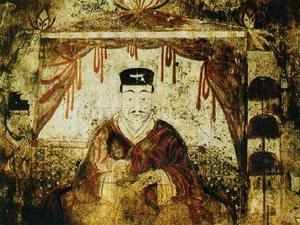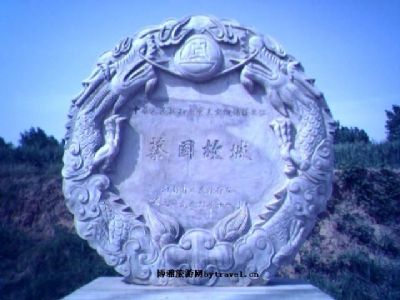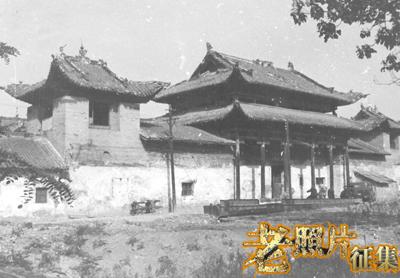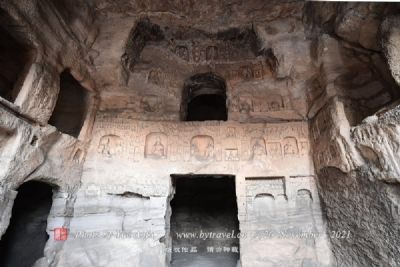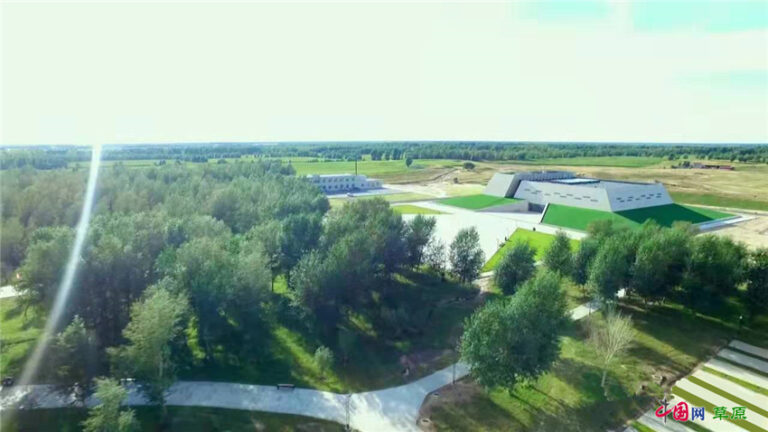Exploring Beizhenmiao: Jinzhou’s Enchanting Temple and Its Rich History
An Essential Guide to Visiting Jinzhou Beizhenmiao
In This Guide
- An Essential Guide to Visiting Jinzhou Beizhenmiao
- The Rich History of Jinzhou Beizhenmiao
- Main Highlights: What to See at Jinzhou Beizhenmiao
- Planning Your Visit: A Practical Guide
- Tickets, Hours, and Booking
- How to Get There
- Local Cuisine and Accommodation
- Frequently Asked Questions
- Final Thoughts on Your Trip
Nestled in the scenic shadows of the majestic Yiwulu Mountain in Liaoning Province, China, lies the remarkable Beizhen Temple, a hidden gem that beckons travelers with its rich history and architectural grandeur. As one of the last remaining sacred shrines dedicated to the mountain gods, this temple stands as a testament to the enduring spiritual heritage of the region. With origins tracing back over 1,400 years to the Sui Dynasty, Beizhen Temple has been a place of reverence for emperors and commoners alike, and its significance continues to resonate today.
Visitors are greeted by a stunning array of structures that ascend the mountainside, each reflecting the intricate craftsmanship of the Ming and Qing dynasties. The temple complex is thoughtfully laid out along a central axis, culminating in the grand Hall of Offering, where ornate carvings and vibrant murals narrate tales of valor and devotion. This sacred site not only serves as a monument to ancient religious practices but also invites exploration and reflection amidst its serene surroundings.
Beyond the architectural marvels, Beizhen Temple is steeped in cultural lore, with historical inscriptions and stone tablets that document its storied past. As you wander through this captivating place, you can almost hear the whispers of the ancestors who once sought the blessings of the mountain gods. Whether you’re a history enthusiast, a spiritual seeker, or simply a curious traveler, Beizhen Temple offers a profound glimpse into the soul of northeastern China, making it a must-visit destination for anyone venturing into this enchanting region.
The Rich History of Jinzhou Beizhenmiao
Nestled at the foot of the majestic Yiwulu Mountain in Liaoning Province, Jinzhou Beizhenmiao (北镇庙) stands as a testament to centuries of spiritual reverence and architectural grandeur. This revered temple, dedicated to the mountain deity, boasts a rich history that dates back over 1,400 years, with its origins tracing back to the Sui Dynasty during the reign of Emperor Wen.
Initially established as the “Shen Ci” or mountain deity shrine, Beizhenmiao has undergone numerous renovations and expansions through various dynasties, including the Jin, Yuan, Ming, and Qing. This evolution reflects the temple’s enduring significance and the continuous veneration it received from successive emperors. Historical records reveal that the temple was officially named Beizhenmiao during the Hongwu period of the Ming Dynasty, marking it as a crucial site for religious practices and imperial worship.
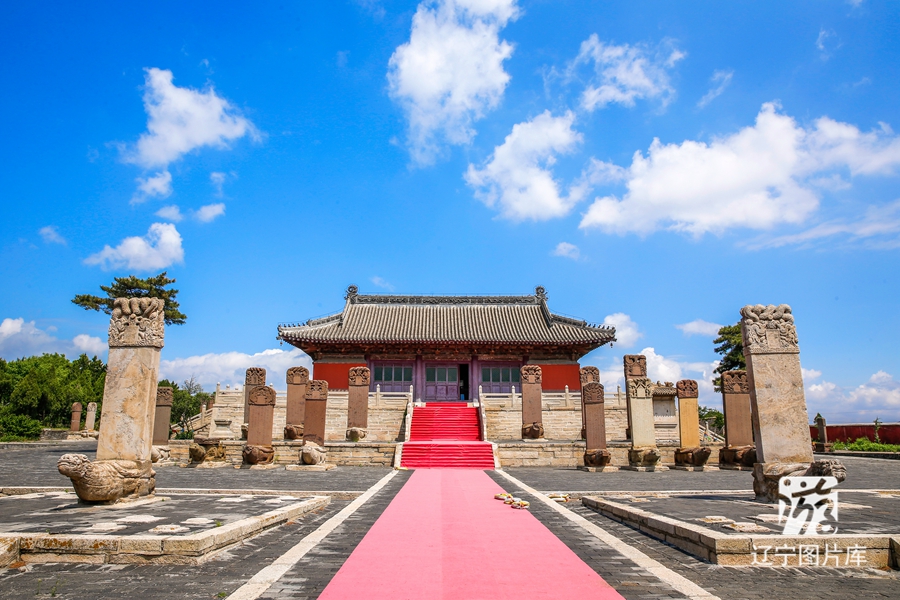
Jinzhou Beizhenmiao.
The temple is not only an architectural marvel but also part of the revered “Five Great Town Mountains” of China, which are recognized for their spiritual significance and historical importance. Among these, Beizhenmiao is notably the only one that remains in its original form, making it a unique cultural treasure. The site is adorned with intricate stone carvings and inscriptions that serve as valuable artifacts for understanding the cultural, economic, and political landscape of the regions it has transcended.
One of the temple’s standout features is the central hall, which is renowned for its impressive structure and is where major rituals and ceremonies were conducted. The hall houses a statue of the mountain god, reflecting the temple’s role as a focal point for pilgrimage and worship. Visitors can also admire murals depicting the deeds of the 32 founding heroes of the Ming Dynasty, offering a glimpse into the historical narratives that shaped the region.
In addition to its religious significance, Beizhenmiao has been a site of imperial patronage. Emperors from the Qing Dynasty, including the renowned Qianlong Emperor, have visited the temple, leaving behind poetic tributes and inscriptions that celebrate the deity’s protective role over the land. This connection to imperial authority further solidifies the temple’s status as a cultural bastion.
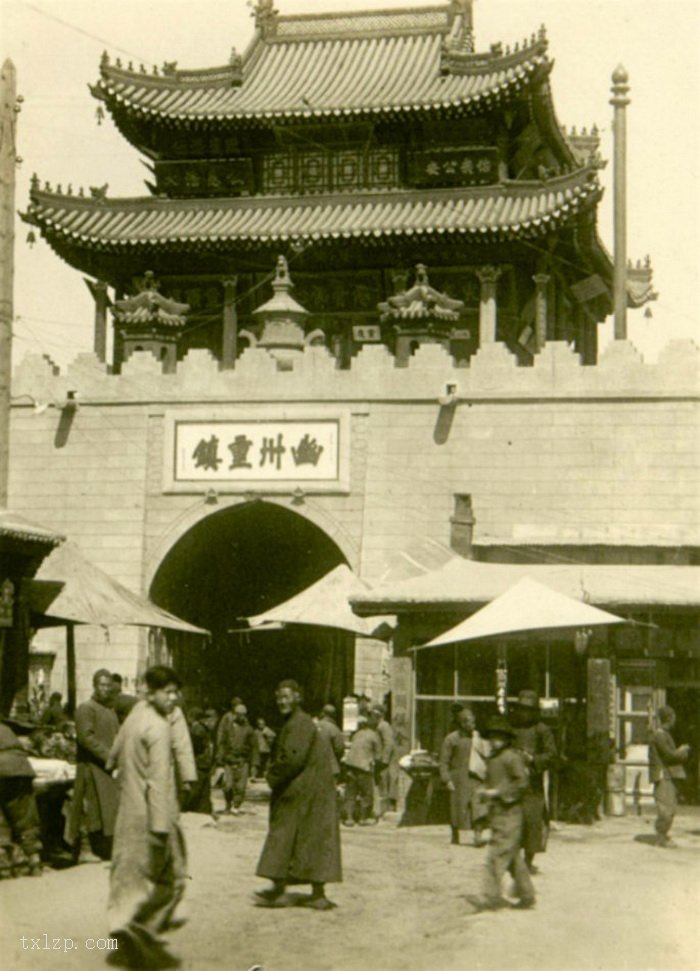
Jinzhou Beizhenmiao.
Today, Jinzhou Beizhenmiao is recognized as a national key cultural relic protection unit, attracting visitors not only for its spiritual heritage but also for its stunning architecture and historical narratives. As you explore the temple, you will find that it serves as a bridge connecting the past and present, inviting all who visit to reflect on the enduring legacy of faith, tradition, and artistry that thrives within its sacred walls.
Main Highlights: What to See at Jinzhou Beizhenmiao
Nestled in the serene landscape of Beizhen City in Liaoning Province, Jinzhou Beizhenmiao (北镇庙) is a remarkable temple that stands as a testament to centuries of history and cultural reverence. Here are some of the key highlights that make this site a must-visit:
-
Historical Significance: Established during the Sui Dynasty in 594 AD, Beizhenmiao is one of the most well-preserved mountain god temples in China. With over 1,400 years of history, it has been a spiritual hub for emperors and locals alike, dedicated to the worship of the mountain god of Yiwulv Mountain.
-
Architectural Marvel: The temple complex is built in harmony with the surrounding mountainous terrain, showcasing a grand layout that ascends from south to north. Key structures include the impressive six-column five-story archway and beautifully designed halls, including the main hall, which features exquisite wooden beams and traditional green tiles.
-
Cultural Treasures: Beizhenmiao is home to an extensive collection of stone inscriptions and carvings from the Ming and Qing Dynasties. The temple houses 56 notable stone tablets, each bearing inscriptions from various emperors, providing a glimpse into historical narratives and cultural practices.
-
Artistic Features: Inside the temple, visitors can admire intricate murals depicting figures from the Ming Dynasty, as well as statues of the mountain god and his consort. The artwork captures the essence of the era, offering a rich visual experience.
-
Natural Beauty: The temple’s location beneath the majestic Yiwulv Mountain adds to its allure. Visitors can enjoy breathtaking views of the mountain landscape, making it an ideal spot for photography and quiet reflection.
-
Spiritual Experience: Traditionally, pilgrims would visit Beizhenmiao before ascending the mountain, a practice that continues today. The temple serves as a place of prayer and tranquility, inviting visitors to partake in its spiritual legacy.
-
Accessibility: Open daily from 8:30 AM to 4:30 PM, Beizhenmiao is easily accessible by car. A nominal entrance fee ensures that the temple remains well-maintained for future generations to appreciate.
With its profound historical roots, stunning architecture, and cultural richness, Jinzhou Beizhenmiao is not just a temple but a living museum that offers a unique glimpse into the spiritual and artistic heritage of China. Whether you are a history enthusiast, an art lover, or simply seeking a peaceful retreat, this temple promises an enriching experience.
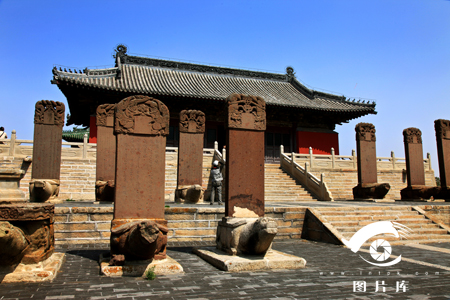
Jinzhou Beizhenmiao.
Planning Your Visit: A Practical Guide
Visiting Jinzhou Beizhenmiao (北镇庙) offers a unique opportunity to explore one of China’s most significant historical and cultural sites. Here is a comprehensive guide to help you navigate your visit.
Location and Accessibility
Jinzhou Beizhenmiao is located in Beizhen City, approximately 2 kilometers west of the city center. The exact address is 707 County Road, Guanyinge Street. The temple is nestled at the foot of the stunning Yiwulu Mountain, providing a picturesque backdrop for your visit.
For those traveling from afar, the nearest major city is Jinzhou, which is well-connected by rail and road. Self-driving is a popular option, as it allows flexibility in exploring the surrounding areas. Public transportation options, such as buses or taxis, are also available from Jinzhou to Beizhen.
Opening Hours and Admission
The temple is open daily from 8:30 AM to 4:30 PM. Admission is 20 RMB per person, making it an affordable option for travelers looking to immerse themselves in cultural heritage.
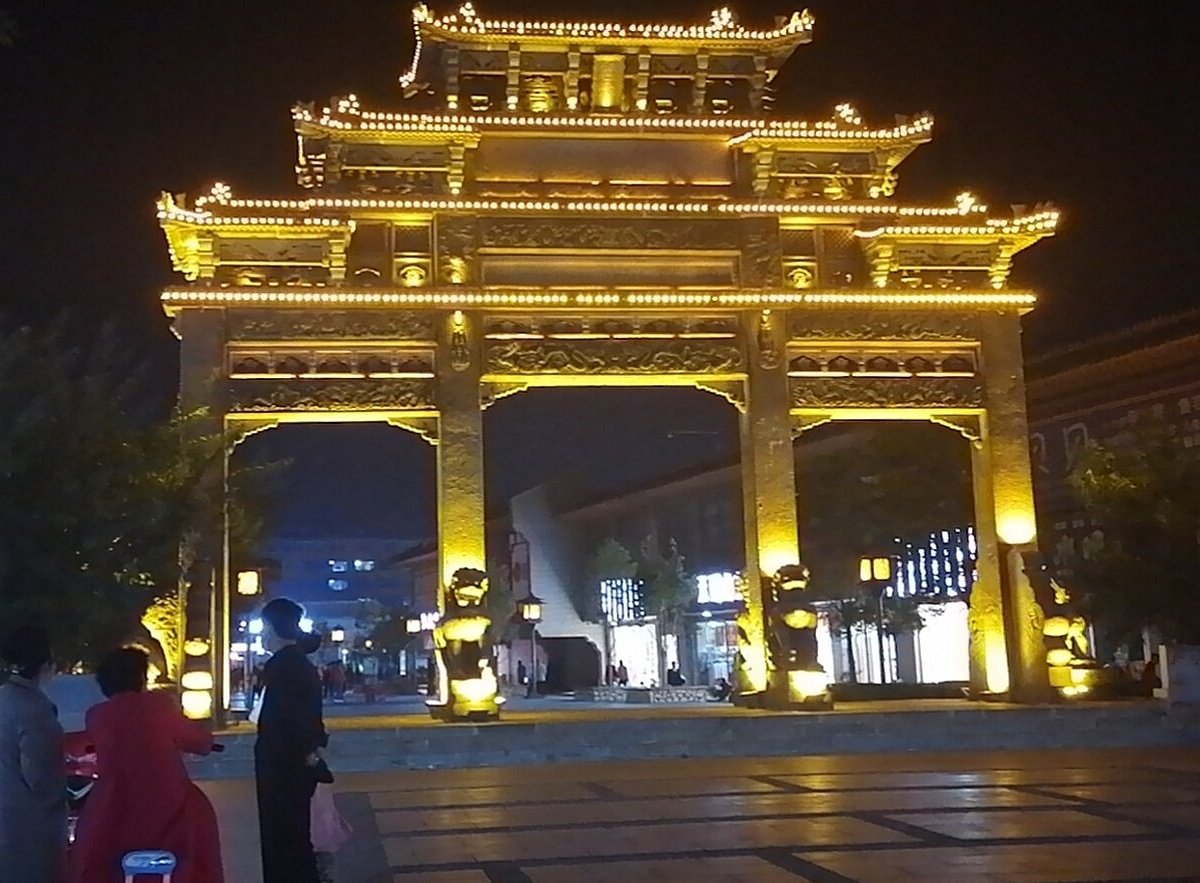
Jinzhou Beizhenmiao.
Exploring the Temple Complex
Recommended Duration: Allocate 1-2 hours for your visit to fully appreciate the architecture and historical significance of the site.
Key Attractions:
- Main Entrance: The grand entrance features a traditional six-column, five-story archway, flanked by guardian stone beasts, setting the tone for the majestic structure ahead.
- Shenma Hall (神马殿): After ascending the twenty steps, visitors will arrive at the Shenma Hall, which is notable for its intricate craftsmanship and historical artifacts.
- Main Hall (正殿): The central hall is where significant rituals are held. Inside, you will find the statue of the Beizhen Mountain deity, surrounded by murals depicting the 32 founding heroes of the Ming Dynasty.
- Stone Inscriptions: A notable feature of Beizhenmiao is the collection of 56 stone tablets documenting various historical events and figures, including poetry from the Qing Dynasty emperors.
Unique Features:
- Cui Shi Ping (翠石屏): This natural rock formation is believed to bring good fortune to those who pass through it.
- Emperor Qianlong’s Poetry: The temple holds historical significance as it was a site for emperors to pay their respects to the mountain deity, with many inscriptions attributed to Qianlong himself.
Nearby Attractions
Surrounding Beizhenmiao, you can explore additional sites such as:
– Yiwulu Mountain: Ideal for hiking and enjoying panoramic views.
– Qingyan Temple: Another historical site of interest located nearby.
Dining and Accommodation
While dining options near the temple are limited, Beizhen City offers several eateries serving local Chinese cuisine. Consider trying:
– Beizhen Cuilin Jin Boutique Hotel for a comfortable stay within proximity to the temple.
– Local restaurants such as Xujia Datuan and Aliang’s Restaurant, offering authentic regional dishes.
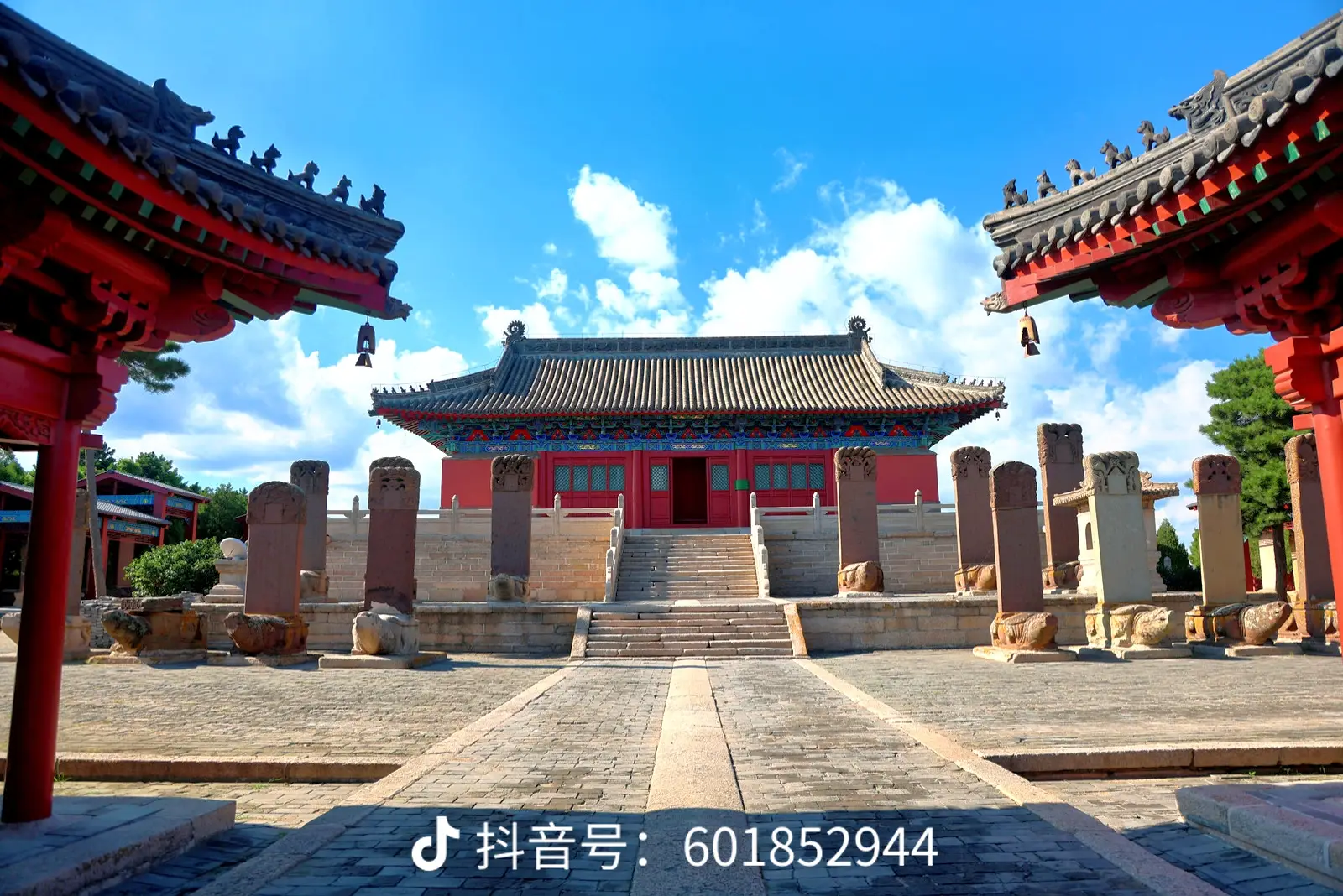
Jinzhou Beizhenmiao.
Tips for Visitors
- Comfortable Footwear: The temple grounds are expansive, often requiring a fair amount of walking. Wear comfortable shoes to enhance your experience.
- Photography: Be sure to bring a camera to capture the stunning architecture and serene landscapes.
- Respectful Attire: As this is a religious site, dress modestly to show respect.
Conclusion
Jinzhou Beizhenmiao is not only a place of worship but also a treasure trove of history and culture. Whether you’re a history buff, a spiritual seeker, or simply looking for a beautiful spot to explore, Beizhenmiao is a must-visit destination in Northeast China.
Tickets, Hours, and Booking
Visitors planning to explore Jinzhou Beizhenmiao (北镇庙) should be aware of the ticketing details as they prepare for their journey. The entrance fee to this historic temple is a modest 20 CNY per person, making it an accessible option for travelers interested in experiencing its rich cultural heritage.
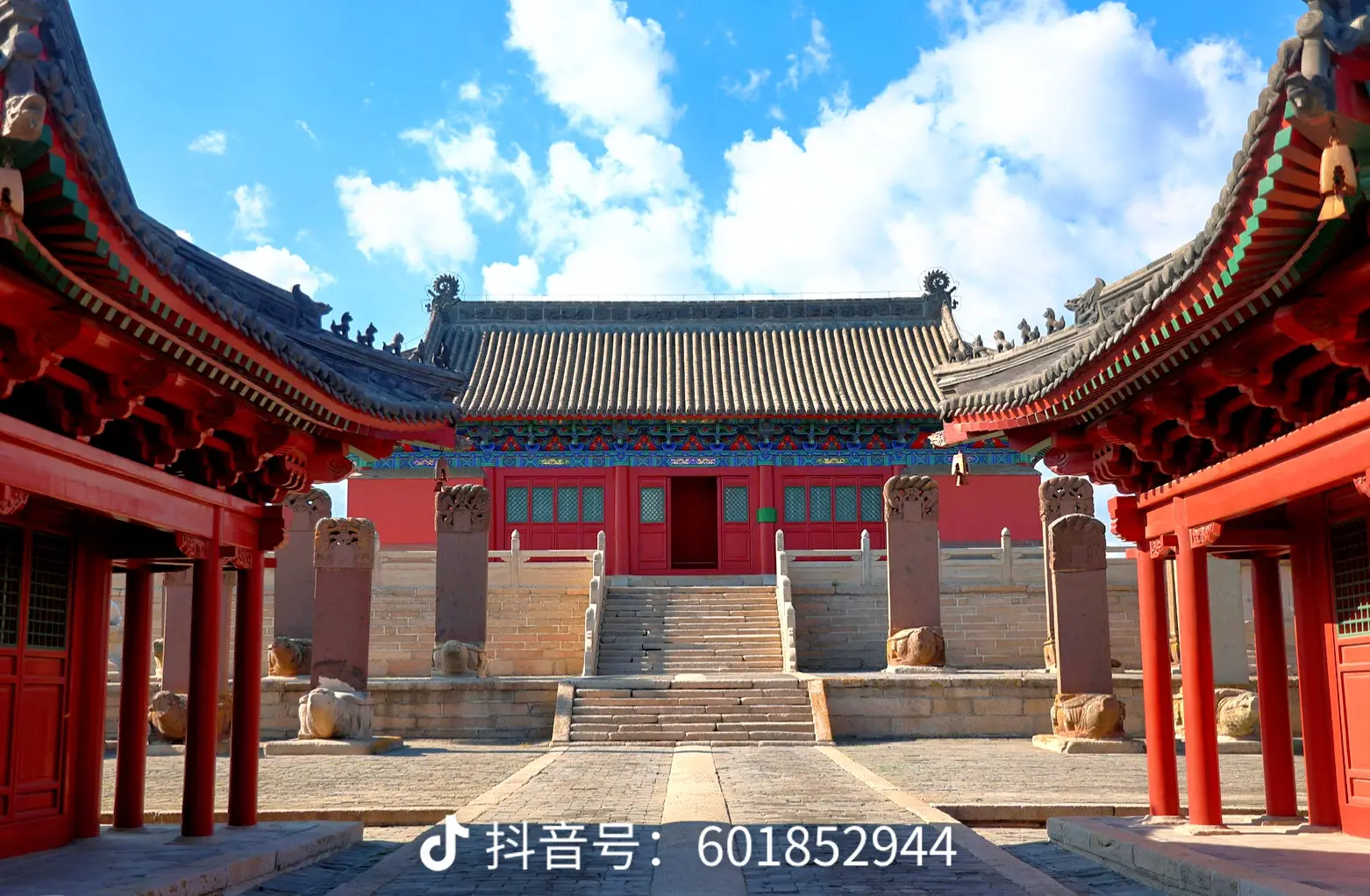
Jinzhou Beizhenmiao.
The temple is open to the public from 8:30 AM to 4:30 PM, allowing ample time to explore the various structures and appreciate the intricate artistry that defines this ancient site. Given its significant historical and architectural value, a visit typically takes about 1 to 2 hours, providing enough time to immerse oneself in the ambiance of this revered place.
For a smoother experience, it’s advisable to arrive early, as the temple can attract a good number of visitors, especially during weekends and holidays. Tickets can be purchased on-site, and while advanced online booking options may not be available, payment methods are straightforward—cash transactions are preferred.
Whether you’re a history buff, architecture enthusiast, or simply seeking a serene spot to reflect, Jinzhou Beizhenmiao offers a unique glimpse into the region’s spiritual and cultural past. Make sure to set aside a little time to explore the surrounding areas as well, as the temple’s location near the scenic medical peaks adds to its charm.
How to Get There
Getting to Jinzhou Beizhenmiao (北镇庙) is a journey filled with cultural significance, and understanding your transportation options will enhance your experience at this historical site.
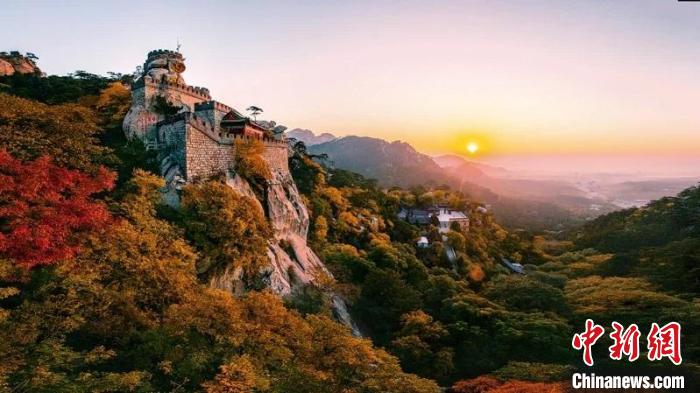
Jinzhou Beizhenmiao.
By Air
The nearest major airport is Jinzhou Airport (JNZ), located approximately 40 kilometers from Beizhenmiao. From the airport, you can take a taxi or arrange for a car rental. Taxi rides will typically take around 50 minutes to an hour, depending on traffic conditions.
By Train
Jinzhou is well-connected by rail, with Jinzhou Railway Station serving as the primary hub. You can take high-speed trains from major cities like Beijing, Shenyang, and Dalian. The train journey offers scenic views of the northeastern countryside. Once you arrive at Jinzhou Railway Station, you can take a local taxi or ride-sharing service to Beizhenmiao, which is about 30 kilometers away and should take around 40 minutes.
By Bus
For budget-conscious travelers, long-distance buses are available from several cities in Liaoning Province to Beizhen. These buses typically depart from Jinzhou Long-distance Bus Station. Once in Beizhen, local buses or taxis can take you directly to the temple, which is about 5 kilometers from the city center.
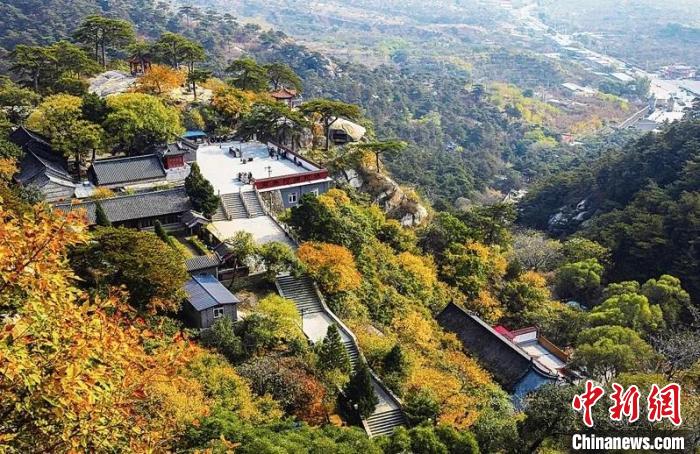
Jinzhou Beizhenmiao.
By Car
Driving to Beizhenmiao gives you the flexibility to explore the surrounding areas at your own pace. If you’re renting a car, navigate to the temple using GPS, as it’s located at 707 County Road in Guanyinge Street. The roads are well-maintained, and signage is generally clear, making for a pleasant drive. Parking is available at the temple entrance.
Local Transport
Once you arrive at Beizhenmiao, the temple complex is spacious, spanning several acres. Visitors should wear comfortable shoes, as exploring the various halls and pavilions may involve significant walking. If you prefer not to walk, local taxis are available nearby to help you get around.
Accessibility
For those with mobility challenges, it is advisable to contact the temple in advance to inquire about accessibility options, as some areas may involve steps and uneven terrain.
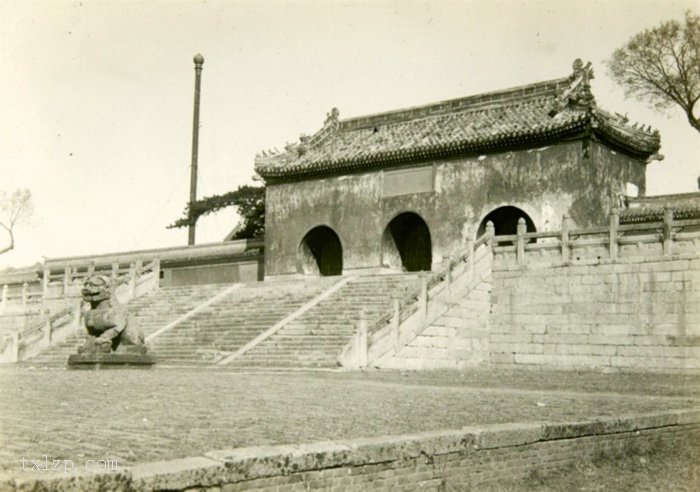
Jinzhou Beizhenmiao.
By understanding these transportation options, you can ensure a smooth journey to Jinzhou Beizhenmiao, allowing you to focus on appreciating its rich history and stunning architecture.
Local Cuisine and Accommodation
When planning your visit to Jinzhou Beizhenmiao, it’s important to consider where to dine and stay to make your experience even more enjoyable. Here are some recommendations that cater to a variety of tastes and budgets.
Dining Options
While exploring the majestic Beizhenmiao, you’ll find several dining establishments nearby that will satisfy your hunger after a day of sightseeing:
-
Beikexinyu Bakery (北客新语面包烘焙坊): A delightful spot for those who enjoy freshly baked goods. The pastries and bread here are popular among locals and provide a quick and tasty option for a snack or light meal.
-
Xu Family Skewers (许家大串): For a more local flavor, visit Xu Family Skewers. This eatery specializes in grilled skewers, offering a variety of meats and vegetables marinated to perfection. It’s a great way to experience the flavors of northern Chinese cuisine.
-
Arirang Restaurant (阿里郎饭店): If you’re in the mood for something different, Arirang offers Korean cuisine that includes beloved dishes such as bibimbap and kimchi. The ambiance is welcoming, making it a good choice for dinner after a long day.
-
Shangshi Snacks (尚食小吃): This casual eatery serves a range of traditional Chinese snacks. From dumplings to local specialties, it’s an excellent place for a quick bite.
-
Yao Family Snacks (姚家小吃): Another local favorite, this spot is known for its homemade dishes that reflect the authentic flavors of the region. It’s perfect for those looking to sample local fare.
Accommodation Choices
For a comfortable stay near Beizhenmiao, several options cater to different preferences and budgets:
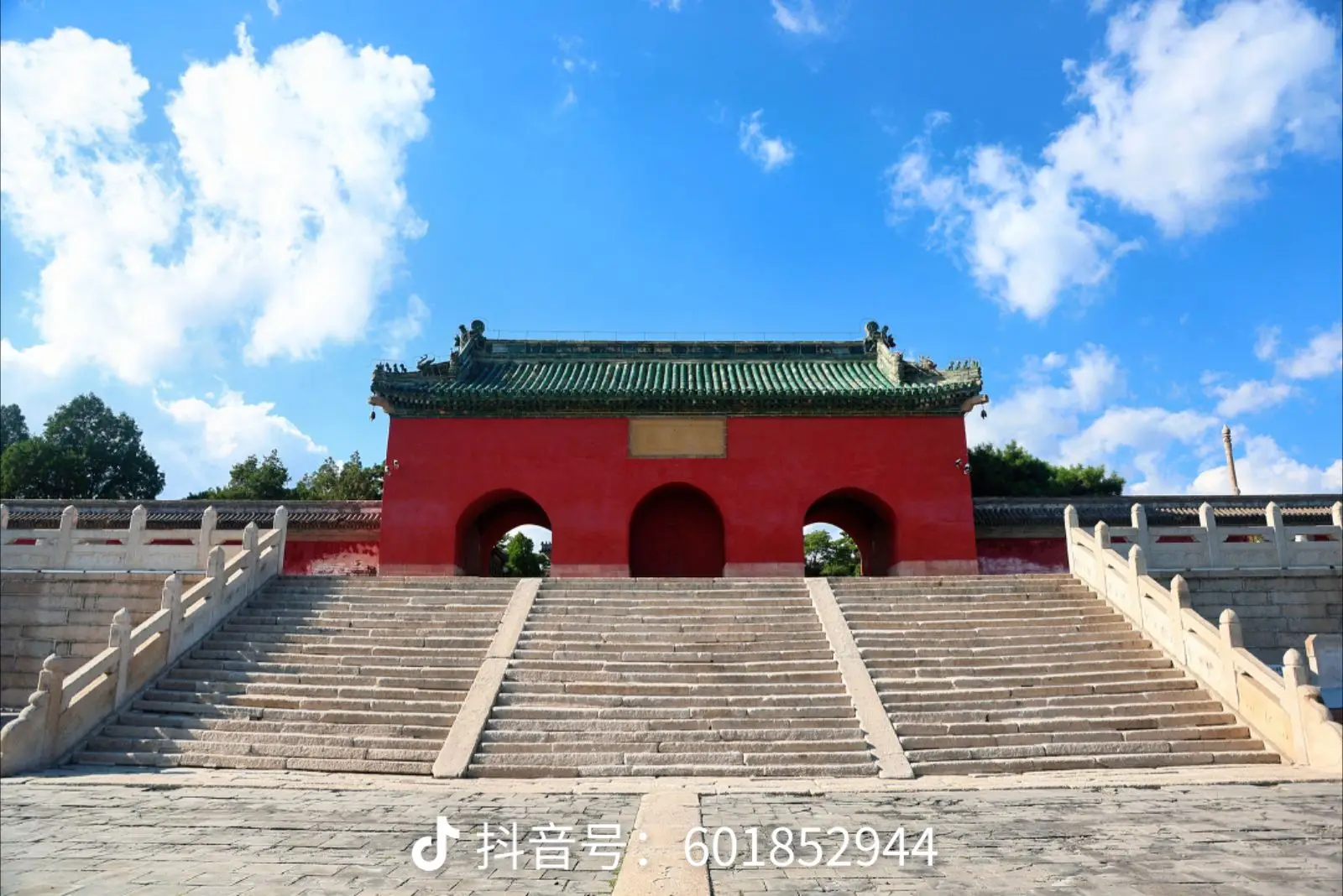
Jinzhou Beizhenmiao.
-
Beizhen Cuilin Boutique Hotel (北镇翠林津精品酒店): This boutique hotel offers modern amenities while reflecting the cultural essence of the region. With well-appointed rooms and excellent service, it’s a fantastic choice for travelers seeking comfort and style.
-
Beizhen Tianhe Inn (北镇天合民宿): For a more homely experience, consider this guesthouse. It provides a cozy atmosphere and personalized service, plus it’s conveniently located near the temple.
-
Jinzhou Wenxin Family Apartment (锦州温心家公寓): Ideal for families or groups, this apartment-style accommodation offers more space and flexibility. It comes equipped with a kitchen, allowing you to prepare your meals if you prefer.
-
Jinzhou Pinwei Solid Wood Inn (锦州品味实木民宿): This inn combines rustic charm with modern conveniences, providing a unique lodging experience. The wooden decor adds warmth, making it a lovely retreat after a day of exploration.
-
Jinzhou Chengjie Apartment (锦州程姐公寓): For budget travelers, this apartment offers clean and simple accommodations at an affordable price. It’s a practical choice for those who prioritize location and value.
With these dining and lodging options, your visit to Jinzhou Beizhenmiao will be both delightful and convenient, allowing you to immerse yourself fully in the rich history and culture of the area.
Frequently Asked Questions
-
What is the location of Jinzhou Beizhenmiao?
Jinzhou Beizhenmiao is located approximately 2 kilometers west of Beizhen City in Liaoning Province, China. It’s situated on the scenic Yiwulu Mountain. -
What are the opening hours for Beizhenmiao?
The temple is open daily from 8:30 AM to 4:30 PM, allowing visitors ample time to explore its rich history and architecture. -
How much does it cost to enter Beizhenmiao?
Admission to Beizhenmiao is priced at 20 yuan per person, making it an affordable cultural experience. -
What are the main attractions within Beizhenmiao?
Notable features include the majestic main hall, the intricately carved stone railings, the four stone pavilions housing ancient inscriptions, and the beautifully preserved murals depicting historical figures from the Ming Dynasty. -
Is there any nearby accommodation for visitors?
Yes, there are several hotels and guesthouses near Beizhenmiao, including Beizhen Cuilin Boutique Hotel and Jinzhou Wenxin Family Apartment, offering a range of options for different budgets. -
What is the best way to reach Beizhenmiao?
The most convenient way to reach Beizhenmiao is by car or taxi. Public transport options may vary, so it’s advisable to check local schedules before planning your visit. -
Are there any dining options near Beizhenmiao?
Yes, visitors can find various dining establishments nearby, including local eateries like Yaojia Snacks and Aliang Restaurant, where you can sample regional cuisine. -
How much time should I allocate for a visit to Beizhenmiao?
A visit to Beizhenmiao typically takes about 1 to 2 hours, which is sufficient to appreciate the temple’s architecture, explore the grounds, and learn about its historical significance.
Final Thoughts on Your Trip
Visiting Jinzhou Beizhenmiao is not just a step into a historical site; it’s an immersive journey through the rich tapestry of Chinese culture and spirituality. This ancient temple, dedicated to the Mountain God of Yiwulu, stands as a testament to the reverence that generations have held for the natural world and its divine protectors. With its stunning architecture, adorned with intricate carvings and historical inscriptions, the temple invites exploration and reflection.
As you wander through its grand halls and serene courtyards, each stone tells a story that has echoed through centuries. The temple’s significance as a national heritage site highlights its importance in understanding the spiritual and cultural foundations of the region. Whether you are a history buff, a spiritual seeker, or simply an admirer of architectural beauty, Beizhenmiao offers a unique glimpse into the past that continues to resonate today.
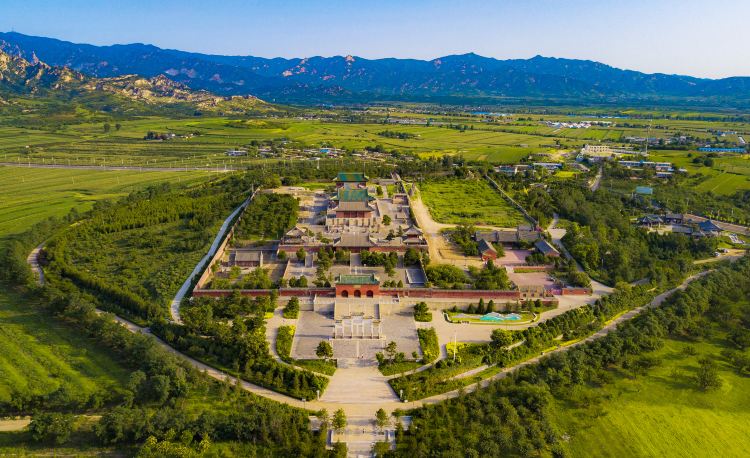
Jinzhou Beizhenmiao.
So, as you plan your visit, take a moment to pause, breathe in the tranquil atmosphere, and connect with the ancient wisdom that still flows through this sacred ground. Let Jinzhou Beizhenmiao inspire you to appreciate the intertwining of nature, culture, and spirituality that defines this remarkable corner of China.
